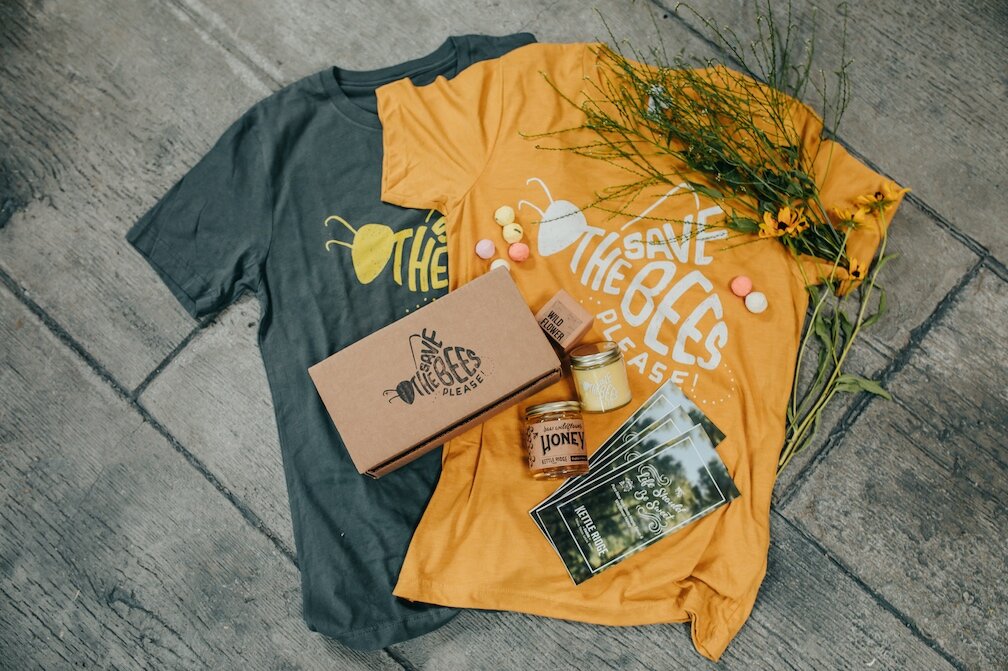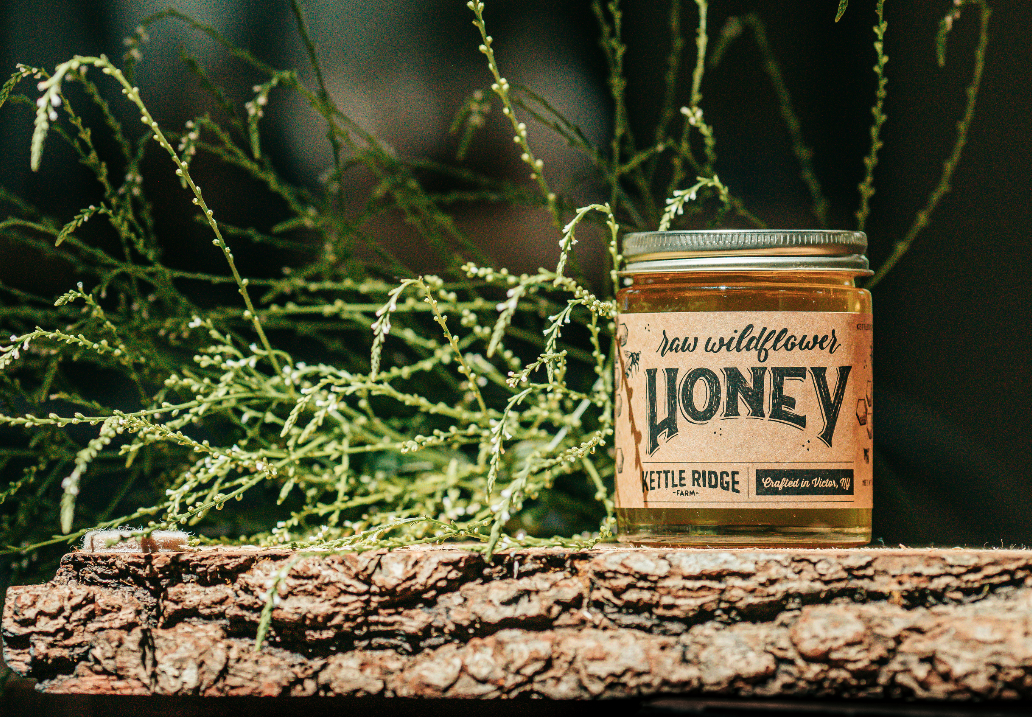Honey bees & other pollinating insects are threatened like never before.
Pesticides, viruses, mites, & habitat loss have caused the number of insects around the world to drop drastically over the last 10 years. Why should this be of concern? Well, one reason is because honey bees are responsible for 40% of the nation’s food supply! Without honey bees, you can say goodbye to apples, almonds, blueberries, cherries, onions, avocados (that's right, no more guacamole)...the list goes on & on.
SAVE THE BEES, PLEASE! is a project put together by Kettle Ridge Farm, our small, family-owned & operated honey & maple syrup farm located just outside of Rochester, NY in the town of Victor. From our land, we harvest around 2,000 lbs of honey each summer & tap around 2,000 maple trees each winter. This effort is part CSA (Community-Supported Agriculture) & part environmental activism. We seek to raise awareness of the plight of bees, increase populations of native, pollinator friendly plants, and introduce you to some amazing products that we make here at Kettle Ridge Farm. A portion of the proceeds will be donated to PollinatorPartnership.org.
What’s in the box?
1. There are two t-shirt styles to pick from: honey yellow with a white logo & charcoal gray with a yellow logo. Sizes available from S-XL.
2. Our seed bombs are made from recycled paper from a local elementary school and native wildflower seeds curated by our beekeepers. Based on your (or your gift recipient’s) shipping address, you will receive native, pollinator-friendly wildflower seeds known to grow well in your region.
3. Our Save The Bees, Please! candles are made from a blend of beeswax and coconut oil. They are sustainably made and have a wonderful natural scent. Burning beeswax produces negative ions which attach to particles in the air, therefore cleaning the very air that you breathe.
4. Our raw wildflower honey comes straight off the hives at Kettle Ridge Farm. The word "raw" means the honey is unheated, untreated and loosely filtered. This allows for enzymes and pollens to remain in the honey which are known to have a variety of health benefits.






